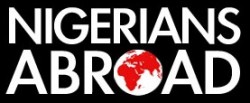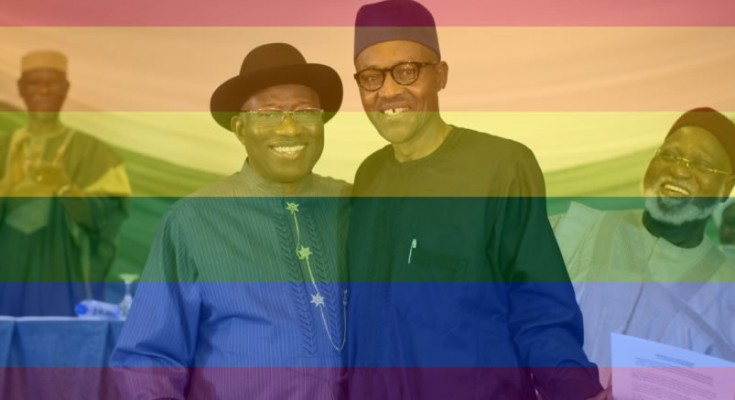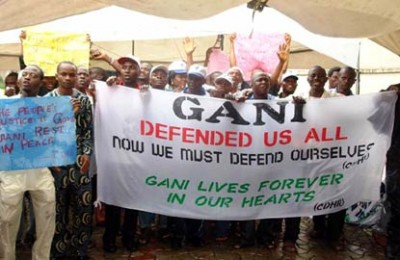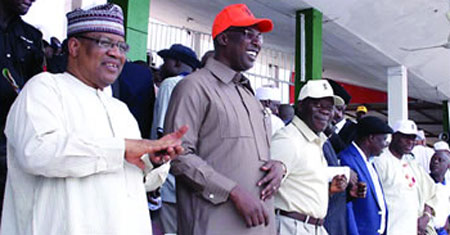By Carrie Seigler, glaad
Nigeria’s “Same-Sex Marriage Prohibition Act” (SSMPA), described by U.S. Secretary of State John Kerry as legislation that “dangerously restricts freedom of assembly, association, and expression for all Nigerians,” was signed into law in January 2014. The law, which condemns married same-sex couples to 14 years imprisonment, was widely supported by members of the general public in Nigeria. LGBT advocates in Nigeria have noted that the law allows members of law enforcement to severely violate the human rights of alleged “culprits.”
In response to the SSMPA, NOI Polls, in partnership with Bisi Alimi Foundation and The Initiative for Equal Rights in Nigeria, conducted a poll in Spring of 2015 to assess Nigerians’ awareness, perception, and levels of acceptance of the LGBT community in the country.
A large majority of the surveyed Nigerians (87%) still expressed support for the “Same-Sex Marriage Prohibition” Law. While that number is extremely high, it is important to note that it is steadily decreasing. In 2010, 96% were in opposition of relationships between same-sex couples, and in 2013, 92% supported the SSMPA.
“This survey reflects a massive gap in knowledge about sexuality and human rights,” said Olumide Makanjuola, Executive Director of The Initiative for Equal Rights. “Indeed, an overwhelming majority of Nigerians (90%) do not think people are born gay, lesbian, or bisexual, insinuating that most respondents believe sexual orientation is a quality acquired or chosen. However, 30% of the Nigerians surveyed agreed that LGBT people should have access to healthcare, housing, and education.” The Initiative for Equal Rights is a Nigeria-based non-profit that works to protect and promote the human rights of sexual minorities nationally and regionally. It was founded in 2005 as a response to the discrimination and marginalization of sexual minorities observed in HIV prevention and human rights work.
Only 17% of the Nigerians surveyed claim to even know someone who is lesbian, gay, or bisexual, with younger adults being more likely to be familiar with someone who is lesbian, gay, or bisexual. Additionally, only 11% of Nigerians stated they were willing to accept a family member who was lesbian, gay, or bisexual. However, younger generations were almost twice as likely to know someone who identified as lesbian, gay or bisexual, giving hope that future generations will continue to be more accepting.
While only 11% of Nigerians stated they were willing to accept a family member who was lesbian, gay, or bisexual, over half (52%) of respondents who believe people are born lesbian, gay, or bisexual know someone in their family, a friend, or someone in their locality who is. This familiarity with lesbian, gay, and bisexual people has led people to a better understanding of sexual minorities, and leading to more support.
“This poll tells us that Nigerians are not inherently homophobic, but that in the absence of accurate information around gender and sexuality, people are left to believe myths and misinformation,” said Bisi Alimi, founder of the Bisi Alimi Foundation, a new non-profit organization that provides unbiased information, education, training, and development projects with a focus on sexuality and gender in Nigeria. The foundation aims to build a wealth of knowledge and reduce homophobia in Nigeria.
Read the Executive Summary of the Nigeria Acceptance Report below.












